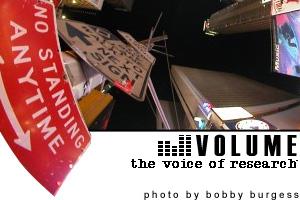- Empirical Research
- Survey Research
- Questionnaire Survey
- Interview Survey
- Telephone Survey
- Strengths and Weaknesses
-
Navigate
- Website for Communication Research
- Human Communication Research
- Nonverbal Communication Research Page
- Web Journal of Mass Communication Research (WJMCR)
Related Links
- Bobby Burgess
- Pixel Scripts
- Blogring.Net
- Soup-Faerie
- Sage Publications
Credits








THE INTERVIEW
Definition
-
a purposeful face to face relationship between two persons
Advantages of the Interview
- It yields a more complete and valid information.
- The interview can be used with all kinds of people, whether literate or illiterate, rich or poor, laborer or capitalist, etc.
- The interviewer can always clarify points or questions which are vague to the interviewee.
- Only the interviewee respondent can make replies to questions of the interviewer, unlike in the case of the questionnaire in which filling up a questionnaire may be delegated to another person or the respondent may be aided by another person in making replies.
- The interviewer can observe the nonverbal reactions or behavior of the respondent which may reveal rich pertinent information.
- Greater complex questions can be asked with the interviewer around to explain things greater complex data which are vital to the study can be acquired.
- There is flexibility.
Disadvantages of the Interview
- Sometimes, selected respondents are hard to contact or cannot be contacted at all because of the distance of their place or due to some other reasons.
- It is expensive if many interviewers have to be employed to meet a target date.
- It is time consuming if only the researcher conducts the interviews.
- It is inconvenient for both the interviewer and the interviewee in terms of time and sometimes in term of place.
- There is no anonymity and so the interviewee may withhold some confidential but vital information, especially if the information may possibly invite trouble.
- There is a tendency of interviewers to introduce bias because they may influence their interviewees to give replies that would favor their research-employers.
- If the interviewer modifies a question, the standardized construction of the question is lessened and, categorization and tabulation become a problem.
Types or Classes of Interviews
- Standardized interview
- Nonstandardized interview
- Semistandardized interview
- Focused interview
- Nondirective interview
Strategies for Initial Questioning
- Funnel questions: a strategy that starts with an open-ended question and follows up with increasingly narrow questions
- Inverted Funnel Questions: a strategy that starts with a very specific question and expands by asking increasingly general questions.
Strategies for Follow-up Questioning
1. Mirror Questions: questions repeating previous responses to gain additional information
2. Prohibiting Questions: questions that directly ask for elaboration and explanation
3. Climate questions: questions asking respondents to explain how they feel about the interview
What to Avoid in Interviews
- Avoid exerting undue pressure upon a respondent to make him participate in an interview.
- Avoid disagreeing or arguing with or contradicting the respondent.
- Avoid unduly pressing the respondent to make a reply.
- Avoid using a language well over and above the ability of the respondent to understand.
- Avoid talking about irrelevant matters.
- Avoid placing the interviewee in embarrassing situations.
- Avoid appearing too high above the respondent in education, knowledge, and social status.
- Avoid interviewing the respondent in an unholy hour.
^top^
Previous - Next